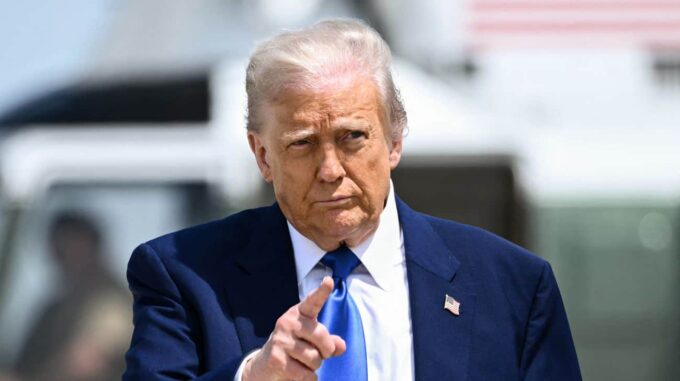The White House emphasizes that the final decision regarding sanctions against Russia will be made directly by U

S. President Donald Trump. This important information was disclosed by White House Press Secretary Carol Levin during Tuesday's briefing, noting that the U.S. leader has the decisive say on strengthening economic restrictions against Moscow. Commenting on the situation, Levin stated that Trump considers sanctions solely as one of the reserve tools of foreign policy. According to the spokeswoman, the U.S. president "is wisely cautious about applying restrictions and keeps them in his arsenal for when the situation requires further action." She also mentioned diplomatic efforts in the region, particularly the negotiations between Ukraine and Russia that took place in Istanbul—events which, in her words, represented a significant breakthrough. "Let me remind everyone of what has been achieved over the past four months. Last year at this time, the possibility of any meaningful dialogue between Kyiv and Moscow seemed impossible, whereas today we are already witnessing real negotiations conducted at the highest levels," Levin emphasized. She added that these significant diplomatic steps became possible thanks to Trump's persistence and determined policy. The White House spokeswoman pointed out that, despite the support in Congress for strengthening sanctions, the ultimate decision to implement them remains with the president. “It is important to understand that Trump is the Commander-in-Chief, and the leadership on foreign policy is concentrated in his hands. This is entirely natural and in accordance with the constitutional powers of the president,” she stated. It is worth recalling that this refers to a bill introduced in the Senate by Republican Senator Lindsey Graham and Democrat Senator Richard Blumenthal, supported by over 80 co-sponsors from both political parties. The document proposes implementing additional economic sanctions against Russia in response to its refusal to agree to a truce and its armed aggression. In particular, it plans to impose a 500-percent tariff on goods imported from countries that purchase Russian oil, which would significantly strengthen economic restrictions against Moscow. Moreover, this initiative has also garnered support in the House of Representatives. Recently, Lindsey Graham stated that his goal is to impose new sanctions against Russia before the G7 summit in June. Such a step reflects the active political stance of American lawmakers regarding increasing accountability for Moscow’s actions in Ukraine and on the international stage. However, the final decision rests with the president, and it will depend on his will which specific measures will be introduced in the near future, given the complex diplomatic and political situation globally.

